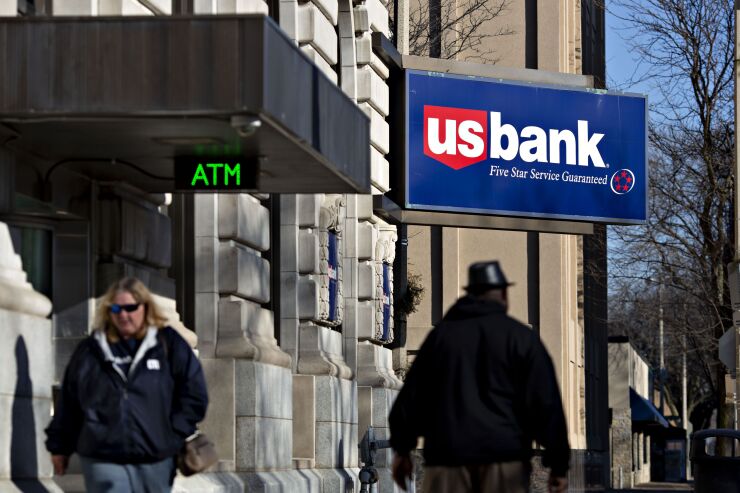
U.S. Bancorp is relying on its merchant services subsidiary, Elavon, to make its play in buy now/pay later lending.
The bank recently launched Avvance, a BNPL option that will piggyback on other recent updates that Elavon is pushing out to the point of sale.
More banks are launching BNPL loans as economic conditions and regulatory scrutiny
"There is a persistent demand for BNPL or installment lending, and we're in a position for a product like this," said Mia Huntington, senior vice president of buy now/pay later and point-of-sale lending for Elavon.
Within Avvance's merchant network, consumers enter their name and address at checkout and within a few seconds receive a loan decision. They also receive terms such as the length of the loan (usually three to 60 months) and the annual percentage rate.
The bank is trying to serve demand from consumers who want an alternative to credit cards. U.S. Bank already offers
U.S Bank expects Avvance to appeal for one-off purchases, such as expensive home appliances, where using or opening a standard credit card may not be convenient or desirable to the consumer.
As the merchant-acquiring wing of U.S. Bank, Elavon can use BNPL as an added feature to keep merchants away from the fintechs that have dominated BNPL lending for the past few years. It can also compete with other banks via its existing range of products available through Elavon. The unit's existing base includes more than 1.3 million clients in the U.S., Europe and Canada, and it is one of the largest five payment processors in those regions for health care, hospitality, retail and the public sector.
"Since we do merchant acquiring, we have a lot of the products that merchants are already using, like card-issuing and point-of-sale technology," Huntington said.
Many of these recent rollouts are designed to cover as much ground as possible, instead of simply updating or replacing existing practices. In September, Elavon expanded its
"We want to bring all of this to the merchant at a point where they are already conducting commerce and interacting with their customers," Huntington said, adding that Avvance "can embed with any of these other tools."
Other banks have the same idea.
There is a new wave among lenders to offer BNPL, especially from larger banks, according to Benjamin Nestor, a senior associate at Datos Insights.
"The trajectory has been to follow developments within small fintech vendors and larger companies like PayPal," Nester said. "In that regard, the banks are usually a few steps behind since they want to assess the performance of BNPL providers, especially since rising interest rates have created some concerns with that market."
And while fintech BNPL lenders have been hit by
"The BNPL market has shown considerable resilience to high interest rates, which seems to have surprised many observers," Nestor said. "If that resiliency continues, more banks will enter the market with their own products, which will be interesting since they are late to the game but can provide a lot more confidence behind the product."






